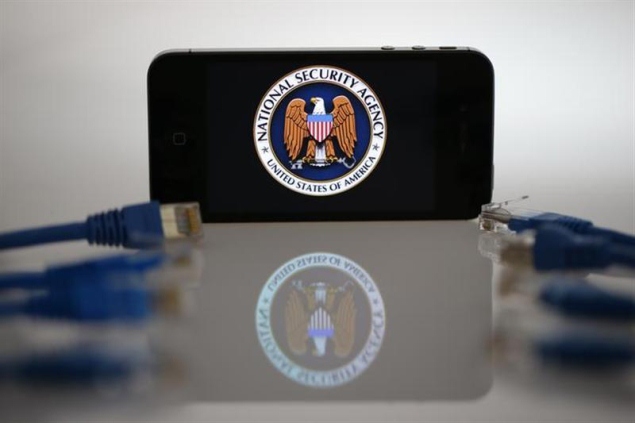- Home
- Telecom
- Telecom News
- US Court Hands Win to NSA Over Metadata Collection Challenge
US Court Hands Win to NSA Over Metadata Collection Challenge

A US appeals court on Friday threw out a judge's ruling that would have blocked the National Security Agency from collecting phone metadata under a controversial program that has raised privacy concerns.
The US Court of Appeals for the District of Columbia Circuit said there were not sufficient grounds for the preliminary injunction imposed by the lower court. The law in question expired in June and was revised by Congress.
The three-judge panel concluded that the case was not moot despite the change in the law and sent the case back to US District Court Judge Richard Leon for further proceedings.
"Although one could reasonably infer from the evidence presented the government collected plaintiffs' own metadata, one could also conclude the opposite," wrote Judge Janice Rogers Brown. As such, the plaintiffs "fall short of meeting the higher burden of proof required for a preliminary injunction," she added.
The NSA and other intelligence agencies had no immediate comment.
Under the amended law, the existing metadata collection program is set to continue for 180 days after the June 2 enactment of the USA Freedom Act.
The new law would require companies such as Verizon Communications Inc and AT&T Inc, to collect and store telephone records the same way that they do now for billing purposes.
But instead of routinely feeding US intelligence agencies such data in bulk, the companies would be required to turn it over only in response to a government request approved by the secretive Foreign Intelligence Surveillance Court.
Former NSA contractor Edward Snowden disclosed the massive phone record collection in June 2013. Documents provided by Snowden showed a US surveillance court had secretly approved the collection of millions of raw daily phone records in America.
The program was challenged by plaintiffs Larry Klayman and Charles Strange. Klayman is a conservative lawyer and Strange is the father of a US cryptologist technician killed in Afghanistan in 2011. They won the case in US District Court in Washington in December 2013.
The government said the program was authorized under Section 215 of the Patriot Act.
In a separate case, the 2nd US Court of Appeals in New York ruled in May that the program was unlawful. The court is due to hear new arguments next week over whether an injunction should be imposed.
© Thomson Reuters 2015
Catch the latest from the Consumer Electronics Show on Gadgets 360, at our CES 2026 hub.
Related Stories
- Samsung Galaxy Unpacked 2025
- ChatGPT
- Redmi Note 14 Pro+
- iPhone 16
- Apple Vision Pro
- Oneplus 12
- OnePlus Nord CE 3 Lite 5G
- iPhone 13
- Xiaomi 14 Pro
- Oppo Find N3
- Tecno Spark Go (2023)
- Realme V30
- Best Phones Under 25000
- Samsung Galaxy S24 Series
- Cryptocurrency
- iQoo 12
- Samsung Galaxy S24 Ultra
- Giottus
- Samsung Galaxy Z Flip 5
- Apple 'Scary Fast'
- Housefull 5
- GoPro Hero 12 Black Review
- Invincible Season 2
- JioGlass
- HD Ready TV
- Laptop Under 50000
- Smartwatch Under 10000
- Latest Mobile Phones
- Compare Phones
- Honor Magic 8 RSR Porsche Design
- Honor Magic 8 Pro Air
- Infinix Note Edge
- Lava Blaze Duo 3
- Tecno Spark Go 3
- iQOO Z11 Turbo
- OPPO A6c
- Samsung Galaxy A07 5G
- Lenovo Yoga Slim 7x (2025)
- Lenovo Yoga Slim 7a
- Lenovo Idea Tab Plus
- Realme Pad 3
- Moto Watch
- Garmin Quatix 8 Pro
- Haier H5E Series
- Acerpure Nitro Z Series 100-inch QLED TV
- Asus ROG Ally
- Nintendo Switch Lite
- Haier 1.6 Ton 5 Star Inverter Split AC (HSU19G-MZAID5BN-INV)
- Haier 1.6 Ton 5 Star Inverter Split AC (HSU19G-MZAIM5BN-INV)






![[Sponsored] Haier C90 OLED TV | Dolby Vision IQ, 144Hz OLED and Google TV in Action](https://www.gadgets360.com/static/mobile/images/spacer.png)









